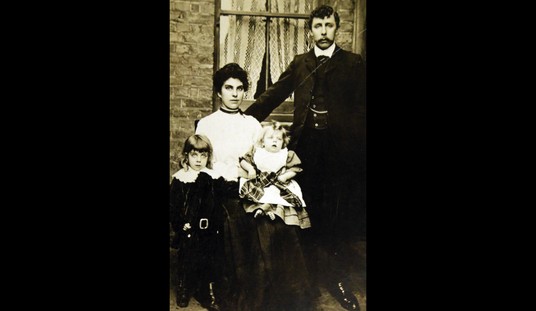
A man looks toward the skyline from Bernal Heights Hill in San Francisco, Monday, March 16, 2020. Officials in six San Francisco Bay Area counties issued a shelter-in-place mandate Monday affecting nearly 7 million people, including the city of San Francisco itself. The order says residents must stay inside and venture out only for necessities for three weeks starting Tuesday in a desperate attempt by officials to curb the spread of the novel coronavirus. (AP Photo/Jeff Chiu)
The CDC has introduced a new ICD code, “to accurately capture mortality data for Coronavirus Disease 2019 (COVID-19) on death certificates.”
(Note: ICD stands for International Statistical Classification of Diseases and Related Health Problems. It is a medical classification list by the World Health Organization (WHO).)
The new ICD code for Coronavirus Disease 2019 (COVID-19) is U07.1. The CDC email says that the WHO has added a second code, U07.2, for instances “where a laboratory confirmation is inconclusive or not available. Because laboratory test results are not typically reported on death certificates in the U.S., National Center for Health Statistics (NCHS) is not planning to implement U07.2 for mortality statistics.”
The problem with the new codes is that it may result in an inflated number of coronavirus deaths.
Former New York Times reporter Alex Berenson noted this on Twitter (tweet below). Under the new Guidance, any death which COVID-19 “caused or is assumed to have caused or contributed to” will be counted as a coronavirus death. He explains that “other possibly relevant factors, like, oh, COPD, are considered secondary.” Berenson adds, “Confirmed lab tests are not required.”
Berenson is concerned that deaths in which the underlying cause may be heart disease, cancer, influenza or something else, will be included in the total number of coronavirus deaths.
It’s a tough call to make. A person may have COPD, but if they would have lived even a little longer had they not been infected with coronavirus, I think it’s fair to call it a coronavirus death.
In some cases, it’s not an easy decision.
An Omaha, Nebraska newspaper reports that a man in his 80s recently died. Along with several underlying conditions for which he was receiving Hospice care, he contracted the coronavirus. “Authorities determined that the COVID-19 infection was his leading, or “acute,” cause of death.”
In cases where “a laboratory confirmation is inconclusive or not available,” it becomes a more difficult call.
The guidelines state: (emphasis mine)
The underlying cause depends upon what and where conditions are reported on the death certificate. However, the rules for coding and selection of the underlying cause of death are expected to result in COVID- 19 being the underlying cause more often than not.
Additionally, the guidelines state: (emphasis CDC’s)
COVID-19 should be reported on the death certificate for all decedents where the disease caused or is assumed to have caused or contributed to death. Certifiers should include as much detail as possible based on their knowledge of the case, medical records, laboratory testing, etc.If the decedent had other chronic conditions such as COPD or asthma that may have also contributed, these conditions can be reported in Part II.
The guidelines can be read in full here.
1/ As you sit home watching #COVID death counts spiral, please know the official @CDCgov guidance for coding COVID-related deaths is as follows: any death where the disease “caused or is *assumed* to have caused or *contributed to* death.” Confirmed lab tests are not required… pic.twitter.com/H4D6mcti3R
— Alex Berenson (@AlexBerenson) April 3, 2020














Join the conversation as a VIP Member